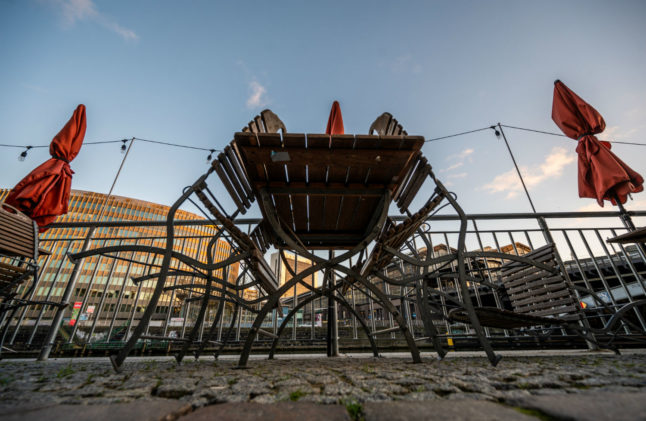States across Germany are putting in place the new coronavirus measures agreed by Chancellor Angela Merkel and states.
However, due to the rising number of Covid-19 cases in Berlin, contact restrictions will be tougher .
- IN DETAIL: Germany extends coronavirus shutdown and tightens restrictions
- EXPLAINED: Eight things to know about Germany's new extended partial shutdown
Tougher contact restrictions
Public life in Germany has been largely restricted since the beginning of November. Restaurants, bars, cultural and leisure facilities are closed, while social contacts have to be cut down. However, schools and Kitas remain open, as do shops.
Berlin is particularly affected, with new Covid-19 cases topping more than 1,000 per day. For this reason, the Berlin Senate decided on new coronavirus measures, which go beyond the agreement reached by Merkel and the states on Wednesday.
According to the Mayor of Berlin, Michael Müller, the rules are to remain in force until January. Before Christmas, however, the Senate will review to see whether the measures are appropriate.
What are the contact rules?
The Senate urges the capital's population to reduce physical social contacts to the “absolutely necessary minimum”. The minimum distance of 1.5 metres should be maintained whenever possible.
In buses and trains, or in services such as at the hairdresser or in Kindergartens, the distance may be less but masks should be worn in this case.
In addition, the Senate has imposed firm contact restrictions for private meetings outdoors and indoors. From December 1st, gathering outside and indoors is only permitted:
- alone/ with members of your own household
- or with people from a maximum of one other household
- A maximum of five people may meet in both cases
- Children up to 12 years of age are excluded
It changes during the festive period:
- From December 23rd to January 1st, people in Berlin can meet with a maximum of five other people. No specifications were made as to how many households they can come from
- Children up to the age of 12 are not included in this rule
That differs from the national line: in other federal states (unless they agree otherwise), meetings with a maximum of 10 people are allowed between Christmas Eve and New Year's Eve, and children up to the age of 14 are not included.
New Year’s rules – these are in line with the restrictions agreed by the government and states.
- Setting off fireworks in the streets is not recommended, and the Senate may ban it in busy public places
- However, the sale, purchase and setting off of fireworks is not banned
The regulations are to be published in full on Saturday by the Berlin Senate.



 Please whitelist us to continue reading.
Please whitelist us to continue reading.
Member comments